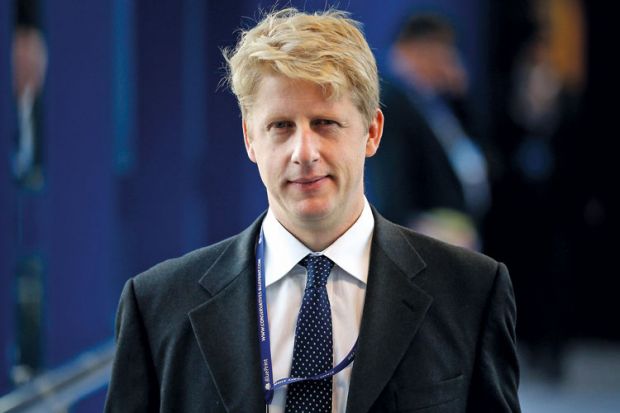Source: Getty
‘Battles ahead’ for Jo Johnson with the Home Office on overseas students
Jo Johnson, the new universities and science minister, has “a hotline to the centre of government” but faces “battles ahead” with home secretary Theresa May on overseas students.
Mr Johnson was appointed to the role in the Department for Business, Innovation and Skills by David Cameron on 11 May after the Conservatives’ general election victory.
The Orpington MP and brother of London mayor Boris Johnson takes up the position after a spell as head of the No 10 Policy Unit. Greg Clark, the former universities and science minister, was promoted to the post of communities and local government secretary.
Sajid Javid, the former culture secretary and parliamentary private secretary to George Osborne, was appointed secretary of state in BIS.
Nick Hillman, director of the Higher Education Policy Institute, said that Mr Javid’s “closeness to the Treasury will work in his favour” on the spending review ahead.
On Mr Johnson’s appointment, vice-chancellors are likely to be pleased to have a well-connected figure in charge. They will also welcome his stances on several key issues.
He has a reputation as a pro-European. And he has previously argued that the government should help to reverse the fall in the UK’s market share of overseas students instead of “artificially hobbling” an important contributor to Britain’s economic growth and soft power.
Mr Johnson also has links to Mr Osborne – while studying at the University of Oxford, he was in the Bullingdon Club with the future chancellor.
Mr Hillman, a former special adviser to David Willetts in his time as universities and science minister, said that Mr Johnson and Mr Javid – a University of Exeter graduate and son of a bus driver who is tipped as a future Tory leader – are “both players with a hotline to the centre of government”.
But he added that “it won’t be all plain sailing…There will be battles ahead for Jo Johnson on migration, and, now that he is the university sector’s representative in government, he will need to fight [the Home Office] more robustly than he perhaps did when heading the No 10 Policy Unit.”
Mr Hillman added that the European Union research budget, of which the UK is a main beneficiary, would play a large part in the EU debates ahead. “Any renegotiation needs to protect the benefits we get from it,” he said.
Mr Javid declined to say whether he supported continued EU membership for the UK when questioned on BBC Radio 4’s Today programme on 11 May, adding that it was impossible to say until renegotiations were completed.
Register to continue
Why register?
- Registration is free and only takes a moment
- Once registered, you can read 3 articles a month
- Sign up for our newsletter
Subscribe
Or subscribe for unlimited access to:
- Unlimited access to news, views, insights & reviews
- Digital editions
- Digital access to THE’s university and college rankings analysis
Already registered or a current subscriber? Login





